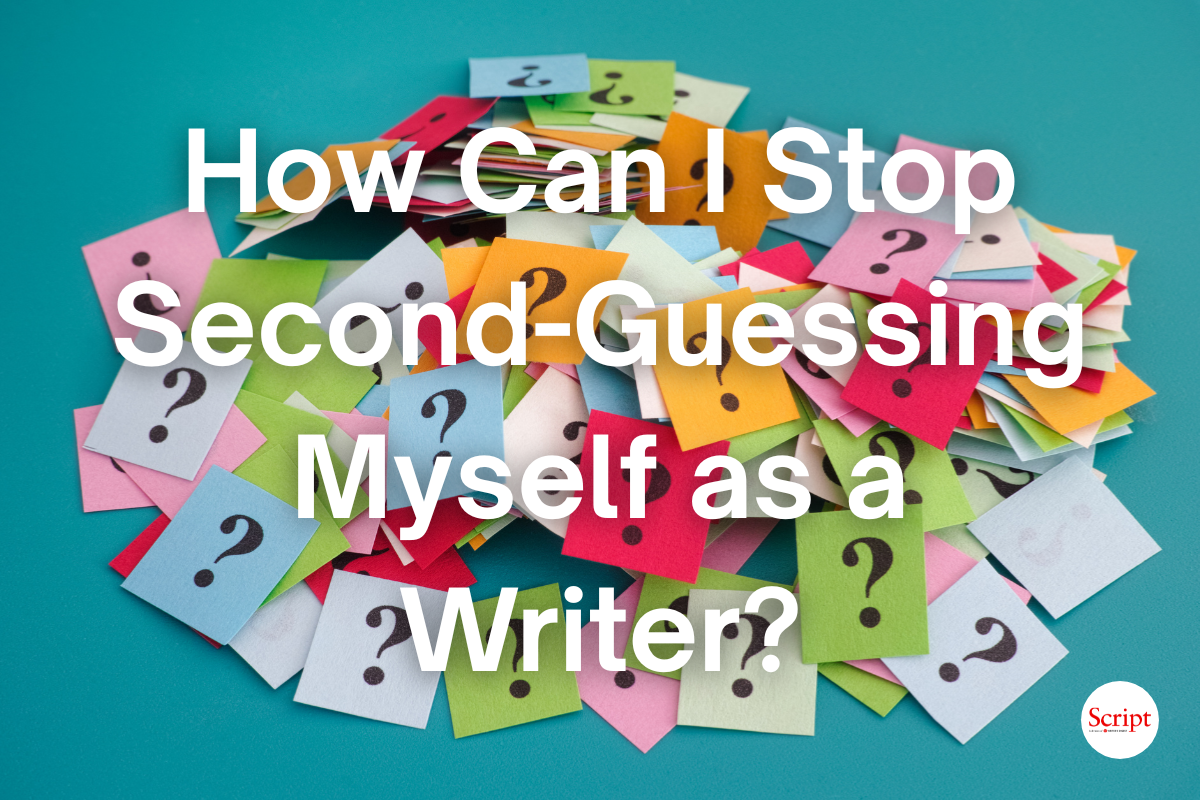How Can I Deal With Distractions From Writing?
Writing coach and Called to Write founder Jenna Avery responds to readers about managing distractions from writing.
Welcome to “Ask the Coach.” As a writing coach, I answer questions from writers about making the work of writing happen, tackling craft, business, and personal questions along the way. (Have a question you’d like answered? Check the details at the end of the article about how to submit one.)
Today, I’m responding to two readers in response to their submissions to a recent reader survey I conducted.
Their comments and questions coalesced around dealing with distractions from writing:
“I’m struggling most with distractions and interruptions.”
“I am having a hard time writing between family distractions and self-doubt.”
As writers, we can choose to see distractions as a form of “resistance” to writing. While technically distractions are “a thing that prevents someone from giving full attention to something else,” they also serve as a reason not to write.
Some distractions take the form of tasks—things we need to handle or manage. These can be highly preoccupying and tempting to put first on our to-do lists before we write. There’s a certain logic to handling them first, too (once we’ve managed them, it’s easier to focus on writing with a clear mind). But—and this is important to remember—these kinds of tasks tend to want to fill all the space available to them. It’s our job not to let them.
Other “distractions” take the form of real responsibilities that are unavoidable and important. Think about parenting and caregiving we may need to do, for example. (As someone with two sick kids at home right now, their needs are real, though thankfully, I share responsibility for them with my husband.)
We also have emotional and mental “distractions.” These can run the gamut from personal growth challenges to emotional awareness of loved ones’ needs to logistical management, and more.
Let’s see what we can do to corral these distractions and keep them from overtaking our writing. For the sake of this discussion, let’s think about tasks, logistics, and awareness. We’ll also talk about interruptions and physical challenges for good measure. (I’ve addressed self-doubt in other columns, though that’s a worthy topic to return to in the future as well.)
1. Give tasks a place to live.
Distractions are most distracting when they don’t have a place to live. In other words, when we try to hold onto tasks in our minds, we’re devoting current brain space to tracking them, trying not to forget them, etc.
A solution for this is to have a place to record tasks so they don’t occupy as much time and space in our short-term memory and, thereby, prevent us from focusing more deeply on writing.
I like to use the Reminders app available on Apple devices because I can sync them, thus having them readily available. I use some recurring tasks to help me stay on top of certain items that I might otherwise forget. I also use a small notecard for tasks that are slightly more time sensitive, so I’m tracking those without having to worry about holding them in my mind.
You don’t have to use my methods. The point, rather, is to create and use a system to turn distractions into tasks by getting them out of your head and into your system.
2. Create a time to complete tasks.
Yes, you can put tasks before writing, but does that ultimately serve you?
Instead, consider giving yourself a consistent hour every day to manage tasks after writing. That way, you can relax and trust that the tasks will be completed in their own time slot, leaving your prime creative time available for writing. (Note: your prime creative time may well be later in the day, in which case you can do it the other way around.)
When you get to your task-management portion of your day, use your tracking system to tackle the highest priority items.
3. Give logistics their due.
There is a certain collection of tasks that aren’t just one-and-done. I think of these as logistics. The dictionary describes logistics as “the detailed coordination of a complex operation involving many people, facilities, or supplies.” (Sounds about right.) All of us have to deal with complex operations at different times in our lives, from bigger life events (weddings, house buying, taxes) to smaller day-to-day things (coordinating activities for kids, planning smaller events, etc.).
It’s important to both accept and recognize the toll these kinds of activities take. They’re important. We’ve committed to doing them. They still take time and impact us.
What we also need to do is make proper time for them, so we’re not giving them the short-shrift either, while not sacrificing writing time too.
This is why it’s important to a) chose very carefully what we’re committing to, b) eliminate all logistical and long-term commitments we are not fully aligned with, and c) delegate as much as possible.
4. Recognize the emotional and mental load you’re carrying.
As self-aware beings in a complex world, it stands to reason that writers are emotionally and mentally aware of and affected by what’s going on around us, whether that’s with ourselves, the people in our lives, or society at large. This might run from managing the logistical and emotional aspects of helping kids navigate school and life or facing the complexities of the current political situations we’re in. It’s hard not to be affected by all of it.
We only have so much bandwidth to spare (I like the idea of how many “spoons” we have to use each day). This means—again—we need to very carefully choose what we say “Yes” to, on top of anything we already have in place as a baseline (and we may need to trim the baseline, too).
Meaning, you can only do so much. You have kids, a job, and a writing career? That may be your limit. Recognize and appreciate the impact of what you’re involved with, and make choices accordingly. Not easy. But worth it.
5. Build protections and resilience around interruptions.
A whole other type of distraction comes in the form of interruptions. Whether this is other people, unexpected calls, leaf blower noise, or what have you, we can get thrown off when we don’t protect ourselves from interruptions.
Start with protections: Put barriers in place to stop others from interrupting you, e.g., doors closed, phone on silent, deals with others not to make requests during certain times of day, etc.
Use strategies to help: You know when those leaf blowers are likely to come, right? Have the music and earbuds ready. Or a writing go-bag so you can bail to the coffee shop quickly and easily.
At the same time, build resilience. The more you practice returning to writing as soon as possible after an interruption, the stronger your writing routine will be.
6. Take care of your physical well-being.
I’ve talked with enough writers over the years to know that physical wellness is an important part of writing, and that physical pain and illness can be a significant limitation to—or “distraction” from—writing.
The specifics of what supports you will depend on your circumstances and can include rest, sleep, health, wellness, exercise, nutrition, hydration, and more. The bottom line of this is doing what you need to do so your physical health doesn’t keep you from writing. You will likely also find that you’re in a more resilient, grounded, focused state when your physical body is well-nurtured.
And along the lines of spoon theory, if you are navigating physical challenges (e.g., chronic pain or illness), you’ll again want to make some serious choices about what you’re doing—and not doing—in order to be able to write.
7. Cut out the truly unimportant sidetracks.
You know what’s true. Are the distractions you’re dealing with important and valuable tasks, logistics, and responsibilities you bear? Or are you letting yourself get pulled into unimportant minutia you can and should let go of?
Sometimes what we’re calling distractions are unimportant, shiny baubles pulling us into rabbit holes and sidetracks, or into perfectionism and procrastination, as a way of flat-out avoiding writing. Recognize these for what they are: Fear manifesting as “distractions.” These are the ones to eliminate ruthlessly, even as you give yourself grace for being human with foibles like all the rest of us.
That’s a Wrap
When we talk about “distractions” from writing, it can be overly simplistic to chastise ourselves for getting pulled away from writing. While these distractions can become resistance, we must overcome them to make writing happen. There are also real tasks, responsibilities, obligations, and needs we need to manage for ourselves and our lives.
At the same time, there may truly be unimportant distractions we’re allowing ourselves to get sucked into and need to release.
Drill down into what’s truly important to you and make sure you’re eliminating everything not on that list, so you can focus on what you’re called to do: write.
Screenwriters, what challenges and blocks are you wrestling with right now? Share them with me for support and suggestions, take the survey, or email me directly at askthecoach@calledtowrite.com. Look for answers to selected questions in the monthly “Ask the Coach” column on the third Thursday of the month.
Find me on Bluesky @jennaavery.bsky.social.







